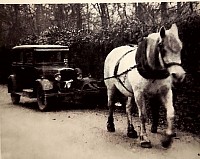What is "Energy" really? How did we come up with the concept?
It starts with the idea of conservation of momentum.
Momentum is defined in mechanics as The Mass of an object multiplied by its velocity (speed). Sir Isaac Newton stated that the speed of an object would not change unless something were affecting it. This 'thing' we call force. If you push it, it should move. Change in speed (Ie, the derivative of the position as time goes onwards), we call acceleration (i.e., the derivative of velocity). We refer to the momentum as 'p,' the mass as 'm', the velocity as 'v,' and last but not least, the force as' F.' We say that p=mv.
To start at the beginning, we must first say that the momentum does not change unless something slows it down or speeds it up. Change we refer to as the derivative but can be noted by this symbol called Delta ∆. Considering the mass as a constant, we can state ∆p=m∆v. We know that the change in speed is acceleration, ∆v=a. This turns into ∆p=m∆v=ma. It is not a coincidence that Newton's famous second law defines force as F=ma. If you were to double force, then the speed would double. Also, if you use the same force on something twice as massive, the change in speed would only be half as much. This is simply because you are using the same force to push double the amount of stuff.

